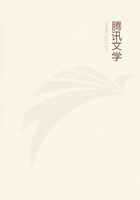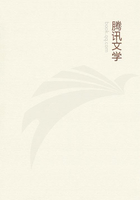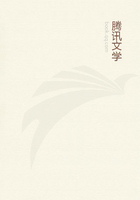his preface,though placed at the beginning,as a preface must be,should be read at the end of the book.
I have received a large amount of correspondence concerning this small work,and many reviews of it--some of them nearly as long as the book itself--have been printed.But scarcely any of the comment has been adverse.Some people have objected to a frivolity of tone;but as the tone is not,in my opinion,at all frivolous,this objection did not impress me;and had no weightier reproach been put forward I might almost have been persuaded that the volume was flawless!A more serious stricture has,however,been offered--not in the press,but by sundry obviously sincere correspondents--and I must deal with it.A reference to page 43will show that I anticipated and feared this disapprobation.The sentence against which protests have been made is as follows:--"In the majority of instances he [the typical man]does not precisely feel a passion for his business;at best he does not dislike it.He begins his business functions with some reluctance,as late as he can,and he ends them with joy,as early as he can.And his engines,while he is engaged in his business,are seldom at their full 'h.p.'"I am assured,in accents of unmistakable sincerity,that there are many business men--not merely those in high positions or with fine prospects,but modest subordinates with no hope of ever being much better off--who do enjoy their business functions,who do not shirk them,who do not arrive at the office as late as possible and depart as early as possible,who,in a word,put the whole of their force into their day's work and are genuinely fatigued at the end thereof.
I am ready to believe it.I do believe it.I know it.I always knew it.Both in London and in the provinces it has been my lot to spend long years in subordinate situations of business;and the fact did not escape me that a certain proportion of my peers showed what amounted to an honest passion for their duties,and that while engaged in those duties they were really *living*to the fullest extent of which they were capable.But I remain convinced that these fortunate and happy individuals (happier perhaps than they guessed)did not and do not constitute a majority,or anything like a majority.I remain convinced that the majority of decent average conscientious men of business (men with aspirations and ideals)do not as a rule go home of a night genuinely tired.I remain convinced that they put not as much but as little of themselves as they conscientiously can into the earning of a livelihood,and that their vocation bores rather than interests them.
Nevertheless,I admit that the minority is of sufficient importance to merit attention,and that I ought not to have ignored it so completely as I did do.The whole difficulty of the hard-working minority was put in a single colloquial sentence by one of my correspondents.He wrote:"I am just as keen as anyone on doing something to 'exceed my programme,'but allow me to tell you that when I get home at six thirty p.m.I am not anything like so fresh as you seem to imagine."Now I must point out that the case of the minority,who throw themselves with passion and gusto into their daily business task,is infinitely less deplorable than the case of the majority,who go half-heartedly and feebly through their official day.The former are less in need of advice "how to live."At any rate during their official day of,say,eight hours they are really alive;their engines are giving the full indicated "h.p."The other eight working hours of their day may be badly organised,or even frittered away;but it is less disastrous to waste eight hours a day than sixteen hours a day;it is better to have lived a bit than never to have lived at all.
The real tragedy is the tragedy of the man who is braced to effort neither in the office nor out of it,and to this man this book is primarily addressed."But,"says the other and more fortunate man,"although my ordinary programme is bigger than his,I want to exceed my programme too!I am living a bit;I want to live more.















